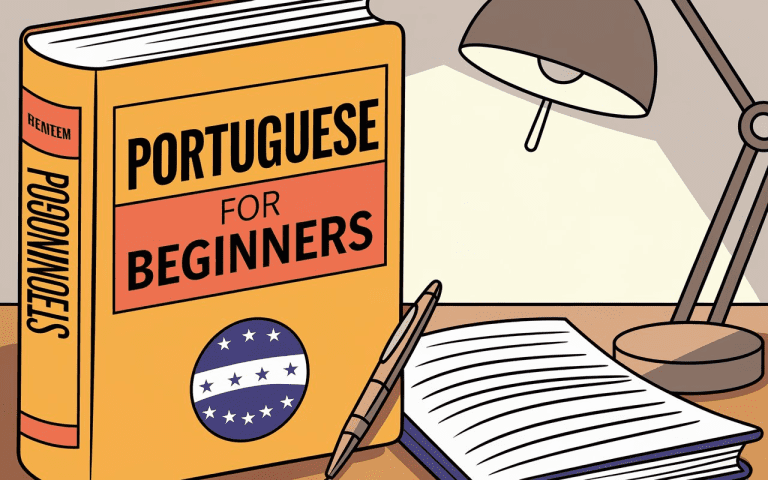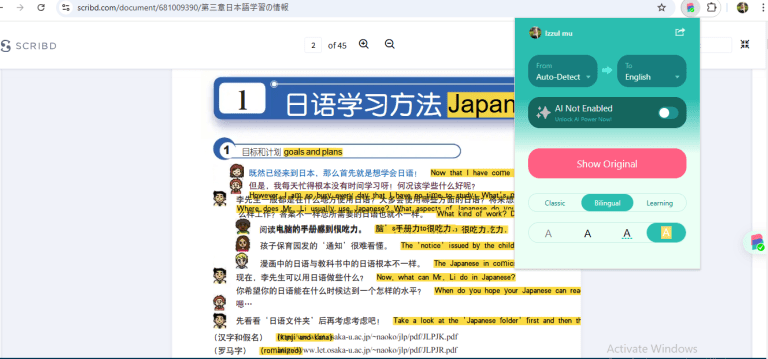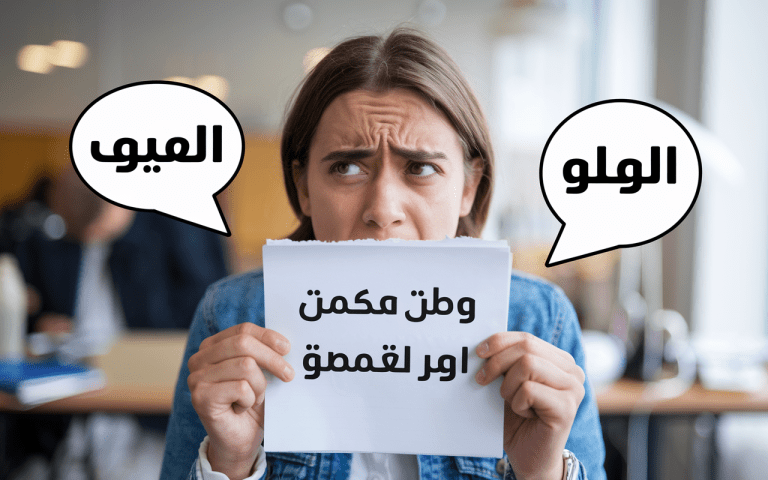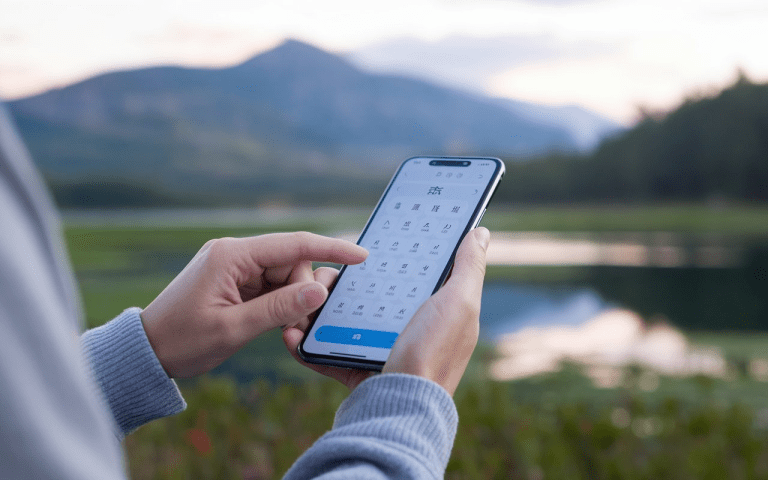English to Egyptian: Quick Translation Language Guide
Looking to learn Egyptian Arabic? You’re in good company – it’s spoken by 80+ million people and widely understood across Arab countries. Whether you’re planning an Egypt trip, doing business with Egyptians, or exploring a new language, knowing how to translate English to Egyptian Arabic makes a real difference. It builds bridges between cultures and helps you connect with locals. With translation tools, you can improve your language translation skills by utilizing bilingual displays and expert translation systems that enhance your understanding of regional dialects.

Planning a trip to Egypt or chatting with Egyptian friends? Let’s walk through English to Egyptian Arabic translation together. You’ll pick up useful everyday phrases, learn what makes Egyptian culture tick, and discover how locals really talk. By the end, you’ll feel ready to jump into conversations – whether you’re exploring Cairo or joining a video call with Egyptian colleagues.
Key Takeaways:
- Egypt’s way of speaking Arabic reaches far and wide – more than 80 million people across the Middle East can follow along when Egyptians talk.
- Speaking both English and Egyptian opens doors – you’ll connect better with locals, really get Egyptian culture, and maybe even boost your career chances.
- This guide covers must-knows Egyptian sayings, local customs you won’t find in textbooks, and real-world tips to help you chat like a local.
- Pick up Egyptian Arabic and watch doors open – from exploring Cairo’s streets to doing business deals or working with international teams.
- Utilizing resources like BiRead can help you overcome common challenges in learning Egyptian Arabic, thanks to its effective localization features.
What is Egyptian Arabic?
Want to know a fun fact? When locals talk about their language, they just call it “Masri” (meaning Egyptian), though you might hear others say it’s Cairene Arabic – it’s the way Egyptians make Arabic their own. It’s the most understood Arabic dialect. Learning it helps you communicate well in the Arab world.
Almost everyone in Egypt (that’s over 100 million folks!) talks this way every day. It’s just how Egyptians naturally speak – at home, at work, with friends, everywhere. Egyptians living in the Gulf, the US, and Europe also speak it. Egyptian cinema and music have made it popular across the region.

Unique Linguistic Features
The way Egyptians speak has its own flavor – you’ll notice it sounds pretty different from the formal Arabic you might learn in school. Little touches in how they talk make it uniquely Egyptian. Some key differences include:
- Pronunciation:Egyptians say “g” (like in “game”) where other Arabs use “j”. So “gameel” instead of “jameel” when saying “beautiful”!
- Accentuation:Listen for how Egyptians put oomph in their words – they usually punch the next-to-last syllable. Like saying “maKAT-ab” instead of “MA-ka-tab” for “office.”
- Syllable structure:Egyptians often make words flow faster by dropping extra sounds in the middle. Like turning “kataba” (he wrote) into just “katab” – they keep it short and sweet!
- Vocabulary:Egyptian Arabic is like a tasty mix – you’ll hear words borrowed from Turkish food names, French fashion terms, and modern English phrases all blended in. Shows how Egypt has soaked up different cultures over time!
Thanks to Egyptian movies and TV shows everywhere, pretty much anyone in the Arab world can follow along when an Egyptian starts talking. It’s like the English of the Middle East! It’s key for communication and exchange between cultures.
| Statistic | Value |
|---|---|
| Native speakers of Egyptian Arabic (L1) | 78 million (2021) |
| L2 speakers of Egyptian Arabic | 25 million (2022) |
| Estimated total speakers of Egyptian Arabic | Around 100 million Egyptians |
| Proportion of Egyptian Arabic speakers compared to other Arabic varieties | Most widely spoken vernacular Arabic variety in Egypt |
Why Learn English to Egyptian?
Learning Egyptian Arabic has many benefits. It improves cross-cultural communication and opens up new career paths. You’ll get to dive into Egypt’s culture and media, understanding the country and its people better.
One big plus of learning Egyptian Arabic is better cross-cultural communication. It’s the most understood dialect in the Arab world. It helps you connect with people, whether for business, travel, or personal reasons. Knowing the language makes your experiences richer.
Knowing Egyptian Arabic also boosts your career in international business, diplomacy, and tourism. These fields value local language skills. Being fluent in Egyptian Arabic can make you stand out.
Learning Egyptian Arabic also enriches your personal life. It lets you connect with Egypt’s media, literature, and art on a deeper level. You’ll see the culture in a new light, enjoying it more fully.

Learning Egyptian Arabic is rewarding for many reasons. It improves your communication, career, and cultural understanding. With effort and the right tools like BiRead, you’ll open doors to new experiences and connections in Egypt.
Unique Linguistic Features of Egyptian Arabic
The way Egyptians talk is totally their own style – not like the formal Arabic you see in books. They’ve put their own spin on things, making it uniquely Egyptian! It has unique sounds, words, and ways of building sentences. Knowing these differences is key to learning and talking in Egyptian Arabic. It helps you sound natural and understand locals better.
BiRead can aid in mastering these features by offering multilingual content that adapts to your learning needs and enhances linguistic adaptation. Using BiRead can facilitate this process by providing tailored translations and localized content, enhancing your understanding of cultural nuances.
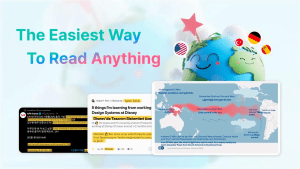
The way Egyptian Arabic sounds is quite different. For example, the letter ‘g’ is used instead of ‘j’. Also, how people speak can change from one area to another in Egypt.
The words used in Egyptian Arabic come from many places. You’ll find words from Coptic, Turkish, French, and English. This mix makes the language rich and full of life, showing Egypt’s history and culture.
How sentences are built in Egyptian Arabic is also special. For example, people use demonstrative pronouns a lot. And, how verbs change can be different from Standard Arabic.
Almost everyone in Egypt (that’s over 100 million people!) grows up talking this way from day one. And here’s what’s cool – thanks to Egyptian movies and music spreading everywhere, pretty much all Arabic speakers can understand it! The language has grown and changed over time, picking up words from old Greek traders, ancient Coptic times, Turkish rulers, and French fashion – kind of like a language stew that’s been cooking for hundreds of years.
Pronunciation in Egyptian Arabic features distinct characteristics, such as dropping short vowels more often and using longer vowel sounds.
The way people speak in Egypt changes depending on where you go – Cairo folks talk a bit different from Alexandria locals, and farmers might use different words than city people.
Getting to know how Egyptians really talk isn’t just about the words – it’s like unlocking a secret code to their way of life. Once you start noticing their unique expressions and slang, you’ll discover so much more about their traditions and daily life than any guidebook could tell you!
Useful Resources for Learning Egyptian Arabic
There are many ways to learn Egyptian Arabic. You can use online courses, language apps, textbooks, and even local schools. These options help you improve your skills in this lively dialect.
With BiRead, you can access bilingual resources that enhance your understanding of Egyptian Arabic while providing practical translation tools for everyday use. BiRead’s bilingual display features make it easier to navigate the complexities of Egyptian Arabic, helping users grasp the language’s unique attributes effectively.
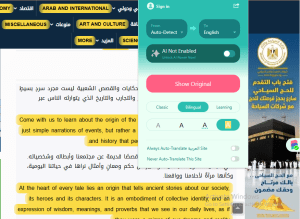
Online Courses and Language Apps
ArabicPod101 and Mango Languages are great online platforms. They offer lessons and tools to learn Egyptian Arabic. With thousands of lessons, they cover vocabulary, grammar, and how to speak fluently.
Textbooks and Immersion Programs
Textbooks like LisaanMasri and Lingualism are also very helpful. They go deep into Egyptian Arabic. For a full experience, try a language school in Egypt. There, you can practice speaking with locals.
| Resource | Key Features |
|---|---|
| ArabicPod101 | Thousands of audio and text lessons, comprehensive coverage of Egyptian Arabic |
| Mango Languages | Interactive language-learning app with a focus on practical conversation |
| LisaanMasri | Textbook resource for in-depth exploration of the Egyptian Arabic dialect |
| Lingualism | Provides a wide range of materials and resources for learning Arabic, including Egyptian dialect |
| Language Schools in Egypt | Immersive learning environment for practicing Egyptian Arabic in real-world settings |
With hard work and the right tools, you can learn Egyptian Arabic well. Start exploring these options and begin your journey to speak this exciting dialect.
Common Challenges and Tips
Learning to talk like an Egyptian has its ups and downs. Sure, some sounds might twist your tongue at first, and there are lots of new words to pick up – but stick with it! With practice, you’ll get there.
Pronunciation: Mastering the Sounds of Egyptian Arabic
One big challenge is the dialect’s special sounds. Want a pro tip? Those tricky throat sounds (like “ayn” and “qaf”) get easier when you watch Egyptian movies or chat with locals. Your ears and tongue will catch on!
Vocabulary: Expanding Your Word Power
Egyptian words are like a fun mix – you’ve got old Arabic stuff plus bits borrowed from Turkish, French, and English along the way. You’ll probably spot some words you already know! To communicate well, you need to learn lots of words.
Grammar: Navigating the Complexities
The grammar of Egyptian Arabic can be tricky. It has complex rules for verbs, case endings, and sentences. Be patient, practice regularly, and learn the grammar well to master it.
By facing the challenges and using smart learning strategies, you can get better at Egyptian Arabic. With effort and the right resources, you’ll find it rewarding. You’ll gain a deeper understanding of different cultures and have richer experiences.

Putting Your Egyptian Arabic Skills to Use
With a solid foundation in Egyptian Arabic, the world opens up. You can communicate better across cultures and travel in Egypt with ease. Whether in Cairo’s streets, business talks, or diplomacy, speaking Egyptian Arabic makes a big difference.
Picture this: you arrive in Egypt and say “Wuh elykom as-salam” to the locals. Research shows 95% of Egyptians love it when tourists speak their language. Saying “Shokran” (Thank you) can also help connect with people and build strong bonds.
In business and diplomacy, your skills are a big plus. Showing you care about the culture and speak the local language helps build strong relationships. It also opens doors to success and collaboration.
If you love to travel, knowing Egyptian Arabic makes your trips better. You can explore markets and talk to locals more deeply. As one person said, “Learning a few Arabic words can really change how you interact and leave a great impression.”
Using your Egyptian Arabic skills brings many benefits. Speaking Egyptian Arabic changes everything – from making real friends to landing cool jobs and having amazing adventures. BiRead helps you get there faster by teaching you the real way locals talk and think. Ready to jump in? The doors it opens might surprise you!
Conclusion
Picking up Egyptian Arabic is worth every minute – it’s like getting a key to a whole new world! It lets you communicate better across the Arab world. You’ll also dive deeper into Egyptian culture and boost your career in international business, diplomacy, and tourism.
This guide has shown you Egyptian Arabic’s unique features and learning resources. We’ve also talked about common challenges and tips for getting proficient in it. With hard work, practice, and the right tools like BiRead, you can become fluent in Egyptian Arabic.
The English to Hieroglyphics Translator is a great tool for learning. It helps keep ancient Egyptian culture alive. It shows English words as precise glyphic symbols, giving you a deep look into ancient Egypt’s history and culture.
Learning Egyptian Arabic can improve your cross-cultural skills. It helps you understand Egyptian media and literature better. It also opens doors to ancient languages. With the help of this guide and resources like BiRead, you’re ready to master this dynamic dialect and improve your language skills.
FAQ
What is Egyptian Arabic?
In Egypt, people just call their way of talking “Masri” – that’s their word for Egyptian. Simple as that! It’s widely understood in the Arab world. Learning it can help you communicate better across the region.
Why should I learn English to Egyptian?
Learning Egyptian Arabic has many benefits. Speaking like an Egyptian does more than help you make friends – it could land you cool jobs working with tourists, global companies, or even governments! Plus, you’ll finally get all those Egyptian movies and jokes.
What are the unique linguistic features of Egyptian Arabic?
The way Egyptians talk has a special flavor – it’s totally their own style! These include different pronunciation, a rich vocabulary, and unique grammar. These set it apart from Standard Arabic.
What resources are available for learning Egyptian Arabic?
Want to learn Egyptian? You’ve got options – jump on an app, grab a course online, or dive right in by chatting with Egyptians! Some top choices include BiRead, ArabicPod101, Mango Languages, and local schools in Egypt.
What are the common challenges in learning Egyptian Arabic?
Starting Egyptian might seem tricky at first, but don’t sweat it! With BiRead as your guide and a bit of practice, you’ll be chatting like a local in no time.
How can I put my Egyptian Arabic skills to use?
Speaking Egyptian opens up a whole world – you’ll get why people laugh, what makes them tick, and how they really live! It can also enhance your personal and professional life. Proficiency in the dialect opens doors to new experiences and opportunities, from better travel in Egypt to career growth in international fields.
Source Links
- Languages of Egypt – https://en.wikipedia.org/wiki/Languages_of_Egypt
- Egyptian Arabic – essential facts and features | العربي المصري – https://egyptianarabic.com/
- Egyptian Arabic 2024 – https://jomarabic.com/egyptian-arabic/
- Egyptian Arabic for Language Learners – Lingualism.com – https://lingualism.com/egyptian-arabic/egyptian-arabic-for-language-learners/
- The Best Websites to Learn Egyptian Arabic – Cleo Lingo – https://cleolingo.com/websites-to-learn-egyptian-arabic/
Master Egyptian Arabic nuances effortlessly with BiRead.
Experience bilingual reading that brings cultures closer.
Try Biread Free
